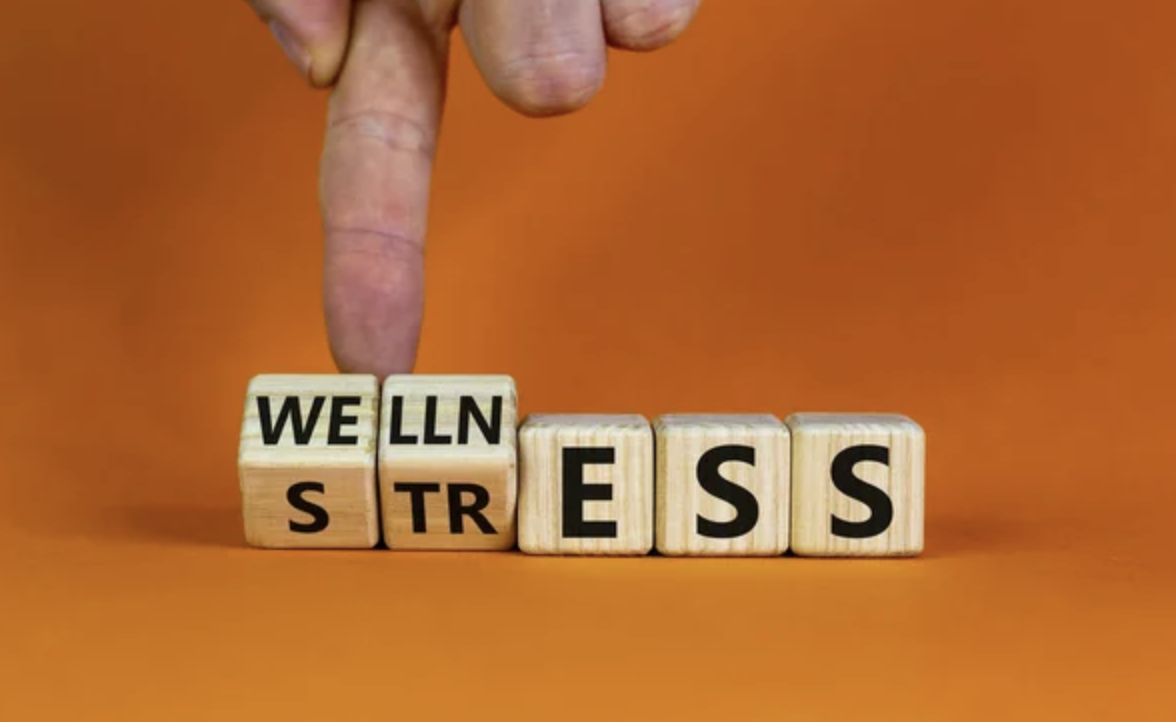Undeniably, the world is filled with so much stress and whether we like it or not, we are invariably affected by it – that is why stress management is necessary.
What is Stress?
Stress can be defined as a state of worry or mental tension caused by a difficult situation. Stress is a natural human response that prompts us to address challenges and threats in our lives. Everyone experiences stress to some degree. The way we respond to stress, however, makes a big difference to our overall well-being.
When you experience changes or challenges (stressors), your body produces physical and mental responses. That’s stress.
Stress responses help your body adapt to new situations. Stress can be beneficial, keeping you alert, determined, and prepared to avoid danger. For example, if you have a big test coming up, a stress reaction may help your body perform harder and stay awake longer. However, stress becomes an issue when stressors persist without release or moments of relaxation.
Types of stress
There are three main kinds of stress: acute, episodic acute and chronic.:
- Acute stress: Acute stress refers to short-term stress that arrives and leaves swiftly. It may be positive or negative. It’s the sensation you get when you’re riding a rollercoaster or fighting with your partner. Everyone feels acute stress from time to time.
- Episodic acute stress: Episodic acute stress occurs when you endure acute stress on a frequent basis. With this level of tension, you never have enough time to recover to a peaceful, relaxed state. Episodic stress is common among those working in particular professions, such as healthcare practitioners.
- Chronic stress: Chronic stress is prolonged stress that lasts weeks or months. You could be experiencing chronic stress as a result of marital problems, workplace problems, or financial difficulties. Chronic stress can create health problems, so finding ways to handle it is critical.
Signs of stress
Stress makes it difficult to relax and can trigger a variety of emotions, including anxiety and irritation. When we are worried, we may struggle to concentrate. We may have headaches or other bodily aches, an upset stomach, or difficulty sleeping. We may notice that we lose our appetite or eat more than normal. Chronic stress can worsen pre-existing health issues and increase our use of alcohol, nicotine, and other substances.
Stressful events can also develop or worsen mental health issues, the most frequent of which are anxiety and depression, requiring medical attention. When we suffer from a mental health illness, it could be because our stress symptoms have become persistent and are interfering with our daily functioning, especially at work or school.
Physical symptoms of stress may include:
- Aches and pains.
- Chest pain or a feeling like your heart is racing.
- Exhaustion or trouble sleeping.
- Headaches, dizziness or shaking.
- High blood pressure (hypertension).
- Muscle tension or jaw clenching.
- Stomach or digestive problems.
- Trouble having sex.
- Weakened immune system.
Psychological symptoms
Stress can lead to emotional and mental (psychological) symptoms, like:
- Anxiety or irritability.
- Depression.
- Panic attacks.
- Sadness.
Often, people with chronic stress try different things to cope. And some of those things are habit-forming and can have an impact on your health. These may include:
- Alcohol use disorder.
- Gambling disorder.
- Developing an eating disorder or overeating.
- Participating compulsively in sex, shopping or internet browsing.
- Smoking.
- Substance use disorder.
Stress rash
A stress rash is a skin reaction to stress or anxiety that usually appears as pink or discoloured, raised bumps that can range in size from small dots to large areas. They can appear anywhere on the body, but are often on the face, neck, chest, or arms. They can be itchy or cause a burning or tingling sensation.
When you’re stressed, your body releases hormones like cortisol, which can cause inflammation and lead to a rash. This is essentially your body having an allergic reaction to stress.
To relieve a stress rash, you can try:
- Taking over-the-counter antihistamines like Benadryl or Zyrtec
- Applying cortisone cream to reduce inflammation
- Removing irritating factors like heat or tight-fitting clothes
Stress rashes are rarely serious skin disorders, but they can indicate that your body is under a lot of stress. Other factors, such as a lack of sleep, could increase the immune system reaction and lead to or worsen skin rashes.
How does stress affect us?
Stress affects both the mind and the body. A little stress is beneficial and can help us do our everyday tasks. Excessive stress can have adverse impacts our physical and mental health. Learning how to manage stress can make us feel less overwhelmed and improve our mental and physical health.
Chronic stress can lead to many long-term health issues affecting your:
- Immune system (like arthritis, fibromyalgia and psoriasis).
- Digestive system (like weight gain or loss, ulcers and irritable bowel syndrome).
- Cardiovascular system (like high blood pressure, increased heart rate and heart palpitations).
- Reproductive system (like infections, polycystic ovarian syndrome and infertility).
Stress can also increase your risk of having a mental health condition, such as depression or anxiety.
How is stress diagnosed?
Stress is a subjective experience that cannot be measured with testing. Only the individual experiencing it can tell if it’s present and how bad it feels. A healthcare provider may use surveys to learn about your stress and how it affects your life.
If you experience chronic stress, your healthcare professional can evaluate stress-related symptoms. High blood pressure, for example, can be diagnosed and treated.
Stress Management Tips and Techniques
Stress management provides an array of strategies for dealing with stress and difficulties, to improve the way you react to stressful things in your life and build resilience. Stress management can help you live a more balanced and healthy lifestyle.
Managing stress means taking control of your thoughts, emotions, schedule, environment, and problem-solving techniques. The ultimate goal is a balanced existence that includes time for work, relationships, relaxation, and fun, as well as the ability to cope under pressure and face obstacles head on.
However, it is not a one-size-fits-all. That’s why it’s necessary to experiment and discover what works best for you. Whether you want to reduce your overall stress level, avoid unneeded stressors in your life, or cope with stress in the present, the following stress management techniques and strategies can help.
If you are under a lot of stress, you can endanger your overall health. Stress disrupts your emotional equilibrium, as well as your general physical and mental health. It reduces your ability to think clearly, work efficiently, and enjoy life:
Stress management starts with feeling good physically:
- Try getting some form of physical activity when you feel symptoms of stress coming on. Even a short walk can boost your mood.
- At the end of each day, take a moment to think about what you’ve accomplished — not what you didn’t get done.
- Set goals for your day, week and month. Narrowing your view can help you feel more in control of the moment and long-term tasks.
- Consider talking to a therapist or a healthcare provider about your worries.
Keep a stress journal:
- What caused your stress (make a guess if you’re unsure)?
- How you felt, both physically and emotionally?
- How you acted in response?
- What you did to make yourself feel better?
Replace unhealthy coping strategies with healthy ones:
Consider how you presently handle and cope with stress in your life. Your stress journal can help you recognize them. Is your coping strategy healthy or unhealthy? Many of us deal with stress in ways that make us feel better briefly but add to the problem in the long run.
- Unhealthy ways of dealing with stress
- Using alcohol or drugs to relax.
- Bingeing on junk or comfort food.
- Zoning out for hours on your phone or TV.
- Withdrawing from friends, family, and social activities.
- Filling up every minute of the day to avoid facing problems.
- Taking out your stress on others
- Procrastinating.
Practice the 4 A’s of stress management:
- You can either change the situation or change your reaction. When deciding which option to choose, it’s helpful to think of the four As:
- avoid,
- alter,
- accept,
- adapt.
Avoid unnecessary stress:
- It is not possible to avoid all stress, and avoiding a situation that requires attention is unhealthy. However, you may be amazed at how many stressors in your life you can reduce.
Learn how to say “no.”
Avoid people who stress you out:
- If someone consistently causes stress in your life, limit the amount of time you spend with that person, or end the relationship.
Take control of your environment:
- If the evening news makes you nervous, switch off the TV. If traffic is stressful, take a longer but less-travelled route. If going to the grocery store is an unpleasant chore, do your shopping online.Avoid hot topics:
- If you get upset over religion or politics, cross them off your conversation list. If you repeatedly argue about the same subject with the same people, stop bringing it up or excuse yourself when it’s the topic of discussion.
Get plenty of sleep:
- Getting enough sleep is important for both body and mind. Sleep repairs, relaxes and rejuvenates our body and can help reverse the effect of stress.
Good sleep habits (also known as sleep hygiene) include:
- Be consistent. Go to bed at the same time each night and get up at the same time each morning, including on the weekends.
- If possible, make your sleeping area quiet, dark, relaxing and at a comfortable temperature.
- Limit your use of electronic devices, such as TVs, computers and smartphones, before sleeping.
- Avoid large meals, caffeine and alcohol before bedtime.
- Get some exercise. Being physically active during the day can help you fall asleep more easily at night.
Connect with others :
- Keep in touch with family and friends and share your concerns and feelings with people you trust. Connecting with others can lift our mood and help us feel less stressed.
If you can’t escape a stressful situation, try to change it. This can often mean altering the way you interact and function in your daily life:
- Express your feelings instead of bottling them up, Be willing to compromise – When you ask someone to change their behavior, be willing to do the same. Be more assertive. Find balance. All work and no play is a recipe for burnout. Try to find a balance between work and family life, social activities and solitary pursuits, daily responsibilities and downtime.
Practice gratitude:
- When stress is getting you down, take a moment to reflect on all the things you appreciate in your life, including your own positive qualities and gifts. This simple strategy can help you keep things in perspective.
- Explore meditation
- Choose healthier food choices
- Stay hydrated
More Stress management tips include:
- Learning skills such as problem-solving, prioritising essential tasks, and managing your time effectively.
- Improving your ability to cope with difficult events that happen in life. For example, you may learn how to improve your emotional awareness and reactions. You also may learn how to increase your sense of control. And you may find greater meaning and purpose in life, along with more gratitude and optimism.
- Practising relaxation techniques such as deep breathing, yoga, meditation, tai chi, exercise and prayer.
If symptoms of stress aren’t going away with stress relief techniques, and you continue to feel overwhelmed. Get in touch with me through this link https://iancartwrightcft.co.uk/contact/




